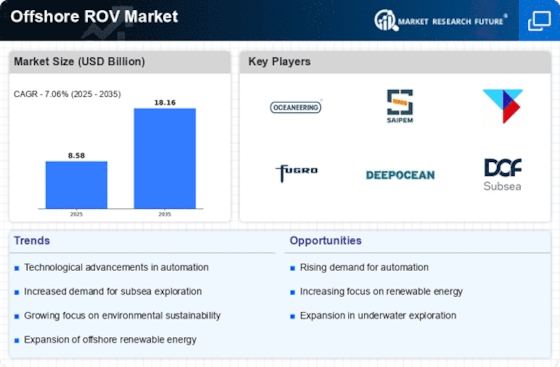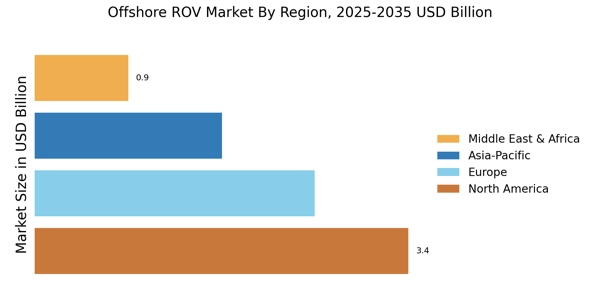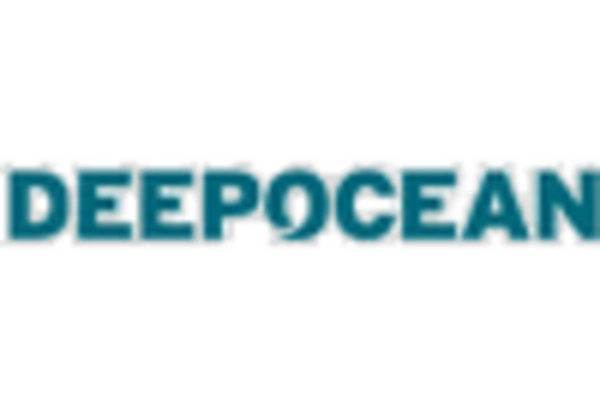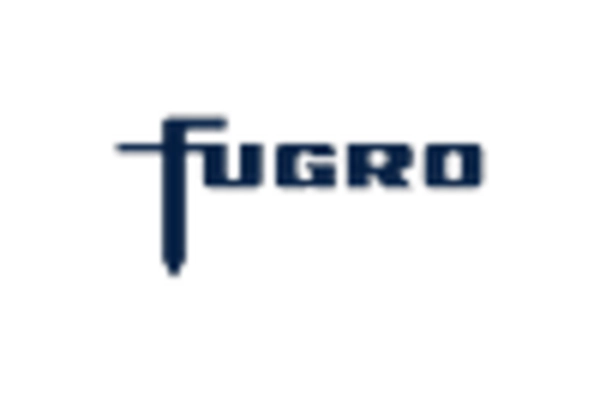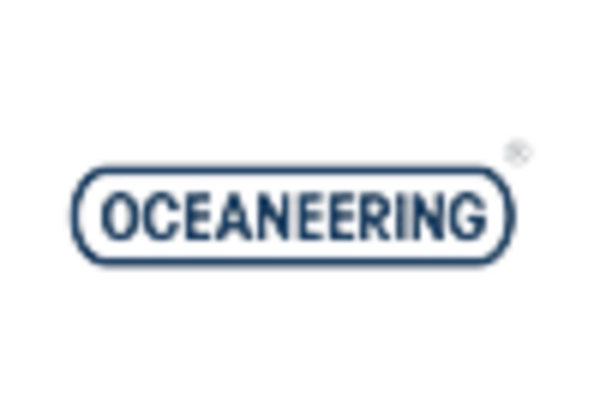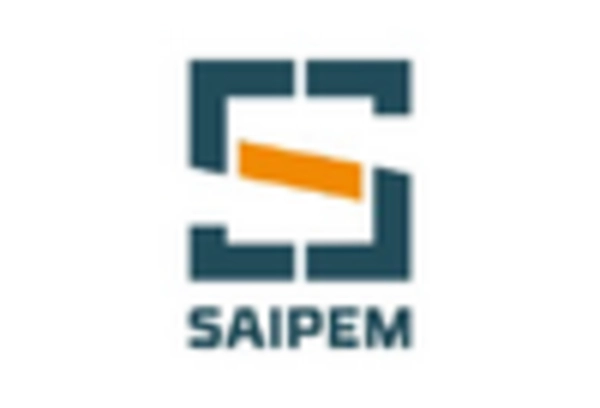Technological Innovations in ROV Design
Technological innovations are significantly shaping the Offshore ROV Market, as advancements in design and functionality enhance operational capabilities. The introduction of more sophisticated sensors, improved navigation systems, and enhanced communication technologies are enabling ROVs to perform complex tasks with greater precision. For instance, the integration of artificial intelligence and machine learning is allowing for real-time data analysis, which can improve decision-making processes during underwater operations. The market is witnessing a trend towards the development of smaller, more agile ROVs that can operate in confined spaces, thereby expanding their application range. This evolution in technology not only increases the efficiency of offshore operations but also reduces costs, making ROVs more attractive to operators in various sectors.
Expansion of Renewable Energy Initiatives
The Offshore ROV Market is also influenced by the expansion of renewable energy initiatives, particularly in offshore wind and tidal energy sectors. As countries strive to meet renewable energy targets, the installation and maintenance of offshore wind farms are becoming increasingly prevalent. ROVs are utilized for various tasks, including site surveys, cable laying, and routine inspections, which are essential for the successful operation of these facilities. The offshore wind market is expected to witness substantial growth, with investments projected to reach billions of dollars in the next decade. This trend indicates a shift towards sustainable energy solutions, where ROVs serve as vital assets in ensuring the efficiency and safety of offshore renewable energy projects.
Regulatory Support for Offshore Operations
The Offshore ROV Market is benefiting from regulatory support aimed at enhancing safety and environmental protection in offshore operations. Governments and regulatory bodies are increasingly implementing stringent guidelines that necessitate the use of ROVs for inspections and monitoring of subsea infrastructure. This regulatory framework is designed to mitigate risks associated with offshore activities, ensuring compliance with safety standards. As a result, the demand for ROVs is likely to increase, as operators seek to adhere to these regulations while maintaining operational efficiency. The emphasis on safety and environmental stewardship is expected to drive investments in ROV technology, further solidifying their role in the offshore sector.
Growing Investment in Subsea Infrastructure
The Offshore ROV Market is poised for growth due to the increasing investment in subsea infrastructure. As industries expand their operations into deeper waters, there is a corresponding need for robust subsea systems, including pipelines, cables, and other installations. ROVs are essential for the installation, maintenance, and inspection of these infrastructures, ensuring their integrity and functionality. The subsea infrastructure market is projected to grow significantly, with investments expected to reach several billion dollars over the next few years. This trend indicates a robust demand for ROV services, as companies seek to optimize their subsea operations and enhance the reliability of their assets. The interplay between infrastructure development and ROV capabilities is likely to create a dynamic environment for market growth.
Increasing Demand for Deepwater Exploration
The Offshore ROV Market is experiencing a notable surge in demand driven by the increasing need for deepwater exploration. As oil and gas reserves become more challenging to access, companies are investing in advanced ROV technologies to reach these depths. The market for deepwater exploration is projected to grow significantly, with estimates suggesting a compound annual growth rate of over 5% in the coming years. This growth is largely attributed to the rising energy demands and the necessity for efficient resource extraction. Offshore ROVs play a crucial role in this sector, providing essential support for subsea operations, inspections, and maintenance. The ability of ROVs to operate in extreme conditions enhances their appeal, making them indispensable tools for companies engaged in deepwater projects.


